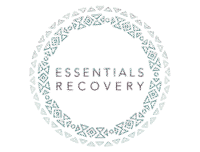Recovery from addiction is about more than just abstaining from substances—it’s about rebuilding a life that supports long-term health and well-being. Wellness programs play a crucial role in this journey by addressing the physical, emotional, mental, and spiritual aspects of recovery. When incorporated effectively, these programs can provide the structure and tools needed to create a fulfilling, substance-free lifestyle. In this blog post, we’ll explore how wellness programs support holistic health and strengthen the recovery process.
The Concept of Holistic Health
Holistic health focuses on treating the whole person, not just the symptoms of a disorder. In the context of addiction recovery, this means going beyond detox and therapy to include practices that promote balance across all areas of life. Holistic health considers a person’s physical fitness, emotional regulation, mental clarity, social support, spiritual growth, and even financial and environmental well-being. By embracing a broad view of health, wellness programs aim to help individuals build the foundation for sustained sobriety and a meaningful life.
Physical Wellness and Its Impact
Physical wellness is one of the most immediate and visible benefits of participating in a wellness program. Addiction often takes a toll on the body, leading to malnutrition, chronic illness, fatigue, and weakened immune systems. Wellness programs typically offer structured fitness routines, nutritional counseling, and access to medical care to help individuals regain strength and energy.
Regular exercise can improve mood, reduce anxiety, and promote better sleep—all of which are critical in early recovery. Eating balanced meals restores essential nutrients and helps regulate mood swings and cravings. As individuals begin to feel better physically, they often become more motivated to stay sober and continue participating in recovery activities.
Emotional and Mental Health Support
Addiction is often deeply connected to emotional pain and unresolved mental health issues. Wellness programs address these challenges through various therapeutic activities and educational workshops designed to build emotional intelligence and resilience. These may include mindfulness training, yoga, expressive arts therapy, journaling, and group support sessions.
Learning to identify and express emotions in a healthy way is essential to long-term recovery. Emotional regulation reduces the likelihood of impulsive behaviors, such as relapse, and helps individuals feel more in control of their lives. Mental health support, including individual counseling or psychiatric care when needed, further strengthens the recovery process.
Building a Supportive Social Network
Social connections play a powerful role in recovery. Isolation is a common experience among those struggling with addiction, and reconnecting with others can be challenging. Wellness programs often encourage participation in group activities, peer-led support groups, and sober events to help individuals build a strong social network.
Positive relationships offer encouragement, accountability, and a sense of belonging. These connections can be particularly helpful during stressful times, providing a safety net when the risk of relapse may increase. Social wellness also includes learning communication and boundary-setting skills, which are vital for healthy relationships.
Spiritual Wellness in Recovery
Spiritual wellness doesn’t necessarily refer to religious beliefs—it encompasses a sense of purpose, inner peace, and connection to something greater than oneself. For many people, addiction leaves a void that wellness programs aim to fill with meaning and intention.
Programs may offer meditation sessions, opportunities for reflection, nature-based activities, or access to spiritual counselors. Engaging in spiritual practices helps individuals cultivate hope, gratitude, and compassion, which can be powerful motivators for staying sober. Finding meaning in one’s recovery journey is often a turning point that leads to sustained change.
Environmental and Financial Health
Holistic wellness also includes a stable and healthy environment. Living conditions have a significant impact on stress levels and well-being. Wellness programs may support individuals in finding safe housing, reducing clutter, and creating routines that promote order and comfort in their daily lives.
Financial health is another key factor in recovery. Many programs include life skills training, such as budgeting, job readiness, and vocational support. Developing financial independence can improve self-esteem and reduce the risk of returning to old habits due to economic stress.
Life Skills and Personal Development
Sustained recovery requires practical tools for navigating everyday life. Wellness programs often provide education on time management, goal setting, and conflict resolution. These life skills empower individuals to take control of their circumstances and build a future based on stability and purpose.
Participants learn how to structure their days, manage responsibilities, and make thoughtful decisions. As they grow more confident in their ability to handle life without substances, their risk of relapse decreases, and their engagement in recovery increases.
Wellness and Relapse Prevention
One of the most valuable aspects of wellness programs is their contribution to relapse prevention. By addressing the root causes of substance use and replacing harmful habits with healthy ones, these programs reduce the likelihood of returning to addiction. They teach coping mechanisms for stress, provide a framework for accountability, and promote a balanced lifestyle that supports recovery from all angles.
Wellness programs also help individuals recognize early warning signs of relapse, such as increased isolation, mood changes, or cravings. Having a plan and support system in place can make all the difference when facing challenging moments.
Customizing a Wellness Plan
Every individual’s journey through recovery is unique, and so is their path to wellness. A quality wellness program should offer personalized plans that align with each person’s needs, goals, and preferences. Some people may respond best to physical activities, while others may find deep healing in creative expression or spiritual exploration.
Working with a wellness coach, therapist, or recovery professional can help tailor the experience to maximize benefits. It’s also important for programs to be flexible, allowing for changes as individuals progress in their recovery and discover what truly supports their growth.
Integrating Wellness into Daily Life
Sustaining the benefits of wellness programs requires integrating them into everyday routines. This may mean committing to regular exercise, joining a peer support group, practicing mindfulness, or continuing therapy. Establishing these habits takes time, but consistency is key.
Recovery isn’t just a one-time effort—it’s a lifelong journey of growth. Wellness becomes part of the new identity that individuals build in sobriety. By making wellness a daily priority, people can stay grounded and focused, even when life gets complicated.
Community-Based Wellness Programs
Many communities now offer accessible wellness resources that complement formal treatment programs. These may include community fitness classes, recreational groups, sober social events, and public workshops on mental health and nutrition. Community wellness initiatives not only offer affordable support but also help individuals feel connected to others with similar goals.
Involving the broader community in recovery also reduces stigma and promotes a culture of compassion and understanding. When people see wellness and sobriety as desirable and achievable, they’re more likely to embrace the journey themselves.
Conclusion: A Foundation for a Fulfilling Life
Wellness programs provide much more than just support during recovery—they lay the foundation for a healthier, happier, and more fulfilling life. By nurturing every dimension of well-being, from physical health to emotional balance to personal growth, these programs give individuals the tools they need to thrive.
Recovery is about more than avoiding substances—it’s about building a life that feels worth living. Wellness programs help make that vision a reality. Whether someone is just beginning their recovery journey or looking to strengthen their sobriety, embracing holistic health through a wellness program can offer powerful, lasting change.
Let wellness be the path, and recovery be the result. Call us today at 855-509-1697.



